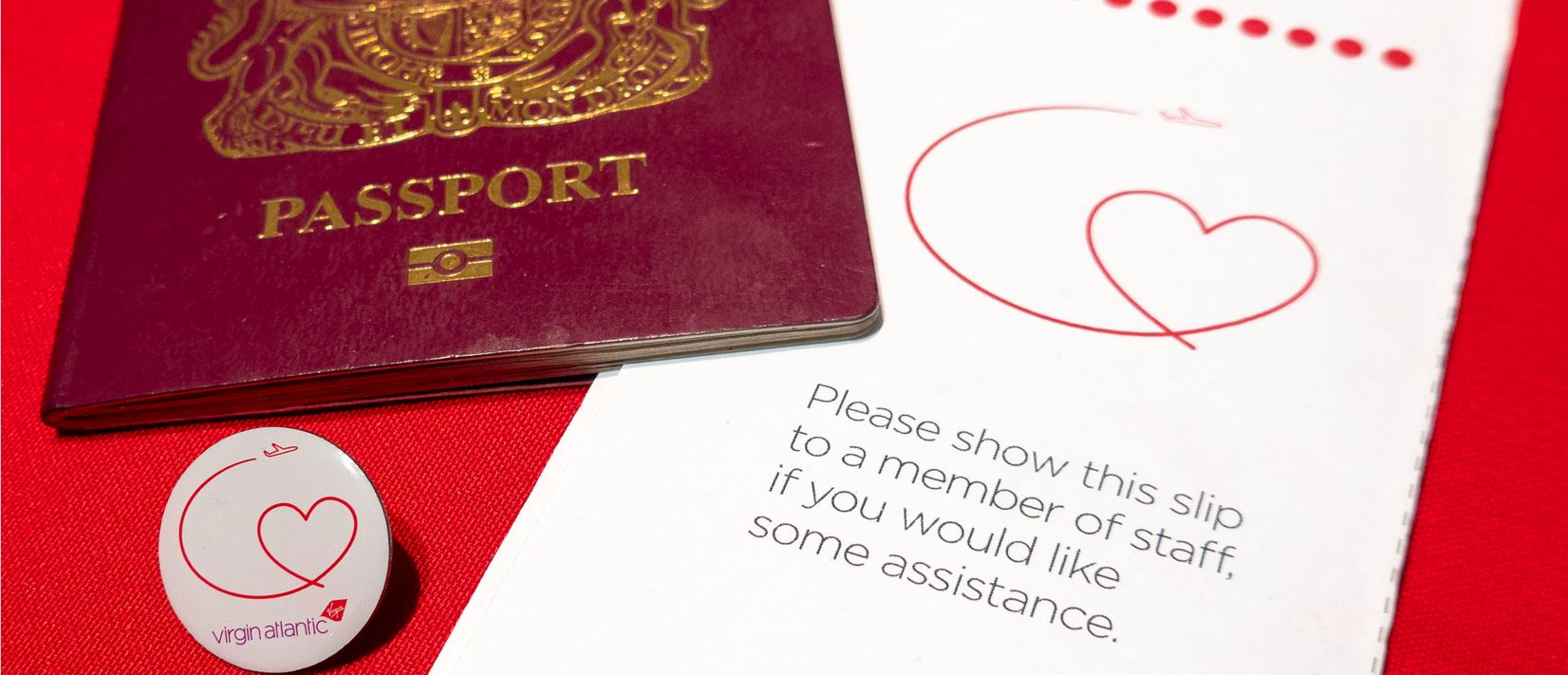For customers with hidden disabilities, we’ve created a symbol that discreetly lets our people know you need a bit of help. It can be used at any point in your journey when, for whatever reason, you’re struggling or feeling overwhelmed. The symbol can be downloaded from our website and either saved on your phone or printed out to have as an insert for your passport. You can also pick up the symbol as a card or pin badge at check-in.
How does it work
Before travelling, anyone with a disability can talk to our Special Assistance team who will discuss your journey and what help you might need. This could be priority boarding, reserved seating, or arranging for an escort through the airport. Onboard, the team can also ensure that in-flight entertainment is provided for blind passengers, with some crew also trained in sign language. We can also arrange for anyone who isn’t sure about the whole flying experience to visit us at our training centre near Gatwick. Here we have airport check-in and aircraft cabin training rigs. Customers with disabilities can have a look around and familiarise themselves with the sights and sounds of flying, try out the seats and talk to experts who know all about flying with disabilities and can offer suggestions and advice to get around most problems. The aim is to put minds at rest and help you realise lifetime ambitions, visit distant friends and relatives and explore the world.


